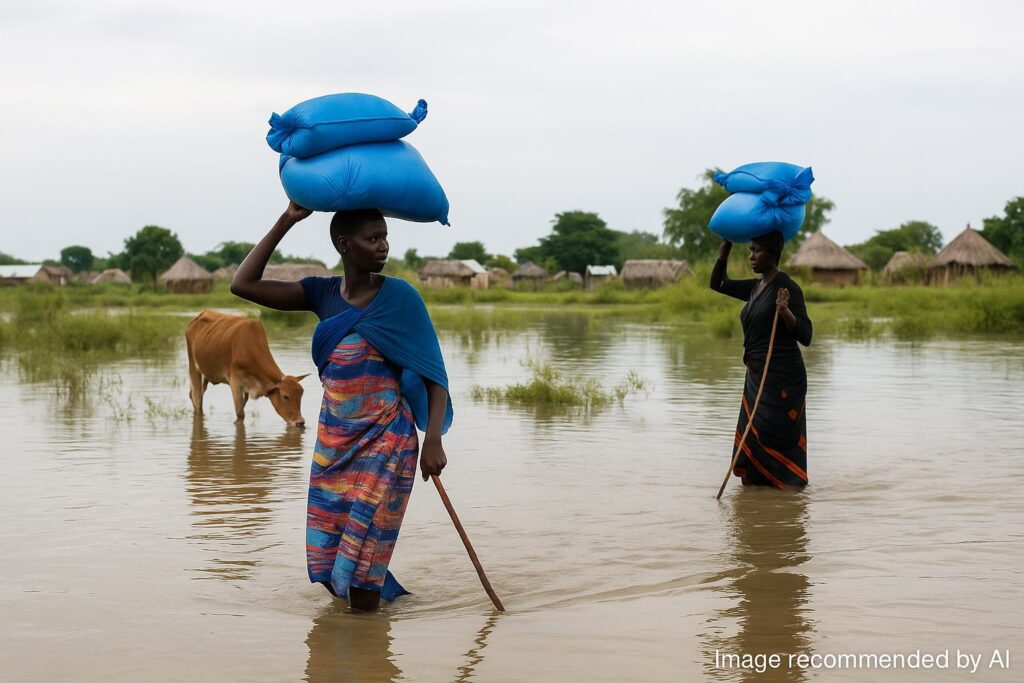Flood Alert Across the Nile Basin
Sirens have not sounded, yet satellite images already show vast swaths of Jonglei and Upper Nile darkening with water. United Nations teams forecast that 1.6 million people could see their homes submerged between July and October.
Many villagers remember 2019’s ankle-deep floods; this season, engineers predict chest-high waters. Some dikes built after independence have collapsed, ushering streams toward Pibor, Bentiu and Wau.
Communities Face Food and Water Pressures
As cropland disappears beneath murky sheets, the price of a sorghum sack in Bor has doubled in six months. Market vendors report supply trucks stranded on impassable roads, amplifying warnings of deeper hunger.
Unsafe water also spreads disease. “Stagnant pools are perfect for cholera,” cautioned Dr. Mary Deng, a public-health officer supervising surveillance flights for the Ministry of Health.
Coordinated Humanitarian Action Underway
Juba has earmarked 78 million US dollars for evacuation corridors, temporary shelters and mobile clinics, a package endorsed by the cabinet last July. Vice-President Rebecca Nyandeng urged agencies to “push into the field before the waters arrive.”
UN Resident Coordinator Anita Kiki Gbeho says partners expect to assist roughly 900,000 people with food, purification tablets and cash vouchers, prioritising women, children and the elderly (UN News, 2024).
Climate Patterns Behind the Rising Waters
Hydrologists attribute the swelling Nile tributaries to record rainfall across the Great Lakes and the slow release of Lake Victoria’s excess through the Nalubaale dam. Climate researchers add that three consecutive La Niña years have saturated soils, leaving little absorption capacity.
Although South Sudan’s emissions are minimal, the nation shoulders disproportionate climate impacts, echoing pleas from President Salva Kiir for greater global adaptation financing.
Building Long-Term Resilience
Communities are not waiting passively. Youth groups in Bentiu are knitting reed boats, while women’s cooperatives in Warrap store dried fish on raised racks for lean months ahead.
Experts argue that strengthening local early-warning systems across the Nile Basin could save both lives and public funds, a lesson neighbours from Sudan to Congo-Brazzaville are closely monitoring.
For now, the race is against rising waterlines and dwindling time, yet coordinated planning suggests this crisis need not become a catastrophe.


